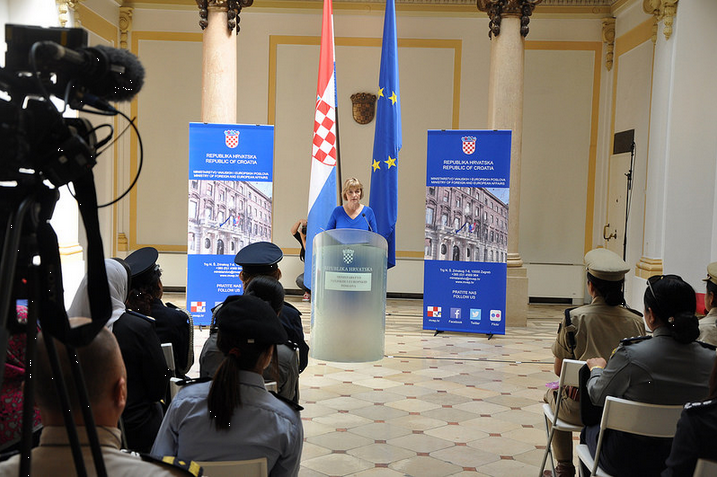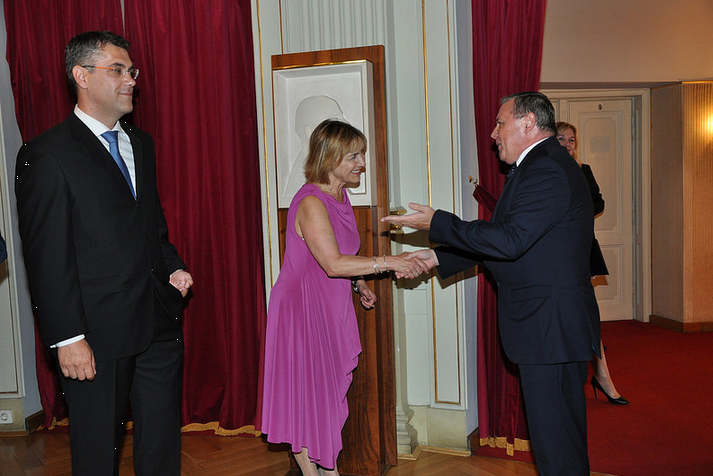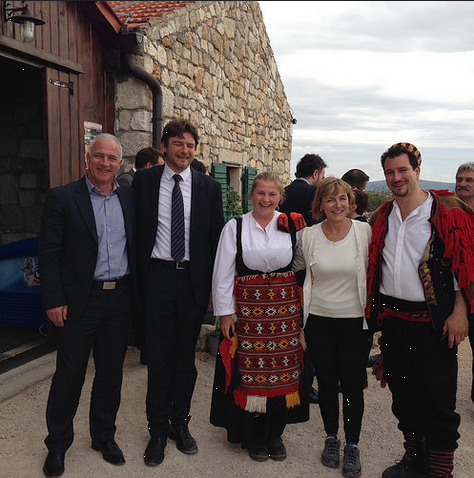Total Croatia News meets Croatian First Deputy Prime Minister and Minister of Foreign and European Affairs, Vesna Pusić.
1. Croatia is celebrating two years in the EU. Even though most of us cannot pinpoint the difference in our everyday lives apart from the freedom of movement, what can you point out as the biggest moments and steps made during these 24 months?
The positioning of Croatia on the European energy map and the refocusing of the EU to the region of Western Balkans are key steps that influence all areas, especially the economy. After achieving the strategic aims of EU and NATO membership, our goal is to have a stable and prosperous economy for the benefit of our citizens. In order to attract direct foreign investment, it is necessary to have a stable and secure environment, as well as secure energy sources.
Other than the Mediterranean and Central European region, Croatia also belongs to the region of Southeast Europe and we need to keep the region peaceful and stable, which is why we insist, support and help our Western Balkan neighbors on their European integration path. Basically, energy policy is and will be a key element of foreign policy and international relations, especially bearing in mind what is happening in MENA countries, the MiddleEast or in the wider European neighborhood.
Out of the 15 energy priorities set by the European Commission, five of them are found in Croatia, which gives us security and reliability for the future. The key projects are the Ionian-Adriatic Gas pipeline, the LNG terminal and gas interconnectors.

2. Croatia is slowly seeing the light at the end of the tunnel with slight economic growth after a long period of downfall. What steps have been made in our foreign policies to entice trade and economic exchange?
We have established an Economic Diplomacy Unit within the Ministry of Foreign and European Affairs in order to support Croatian exports, to protect Croatian companies abroad and to attract foreign investments. During the period from October 2013 and the present, we have provided assistance to 1700 exporters in 116 markets and have taken action in more than 6000 instances.

3. There seems to be a general opinion that this government hasn't done much during its mandate to improve the situation in the country, but when we scratch under the surface we can see that, in fact, many things have been achieved. Do you think there is a problem in communicating your own successes?
We can tell that there is a problem in communicating those successes because the fact is that the economic trends are good. GDP growth is 0.5 %; after five years of decline we have seen growth in industrial output; there has been an increase in employment and a decrease in unemployment;we are looking at an export growth rate of 8,7% as well as positive statistical indicators in the sector of tourism. It might be that, after six years of economic recession, the media and the public are still too pessimistic to recognize positive trends in the economy.

4. What, in your opinion, are the biggest achievements of this government since it came to power?
Bringing the country into the EU. Transforming Croatia into a regional energy hub. After 7 years, we have reversed negative economic trends into positive ones, including an increase in jobs. Eliminating corruption as a modus operandi on the government level.
5. One of your personal pet projects is called Adriatic Provence, an attempt to regenerate inland Dalmatia and neighboring Bosnia and Hercegovina. The project appears periodically in the press, but little concrete progress seems to be being made. What is the current status of the project?
We have started the project without much PR but we have 165 projects worth 240 million euro, and they cover four counties from Zadar to Dubrovnik and also include cross-border cooperation with Bosnia and Herzegovina. This region is beautiful and it carries great potential.

6. You've confirmed that you do intend to run for the position of UN Secretary General this December. We will be looking at two firsts in the new UN secretary-general: the first to come from Eastern Europe, and the first woman in the post. If you were elected, what would it mean to Croatia and what would be your central points of concern and interests during your mandate?
It would be a great opportunity and a tremendous honor for me to even be part of the process but it would also be a valuable opportunity for the visibility of the country itself. I would focus on development cooperation including broadening the base of countries paricipating as providers; peacekeeping missions and refocusing them in an increasingly changing envinronment; developing stabilisation schemes for post-conflict societies; education in general; education and health of women and girls in particular. I would also try to work towards synergy between state, public amd private providers of development assistance.

7. It is 20 years since the end of conflict in the region. How would you assess the stability of former Yugoslavia today, and what are the key areas on focus in this regard for Croatian foreign policy?
During the two decades we have travelled a long and painful road from reconciliation to normal cooperation. Only ten years ago a meeting political leaders from the region was a great sensation. Today we have normal cooperation, and we talk about a wide range of issues. Yes, we do have problems and open questions but we are able to sit down and talk until we find solutions that will suit both sides. As I have previously said, Croatia´s key foreign policy goal is to have a stable and peaceful neighborhood. We are the newest EU member state and nobody understands the negotiation process and the complicated but necessary reforms that a country has to undertake better than us.


